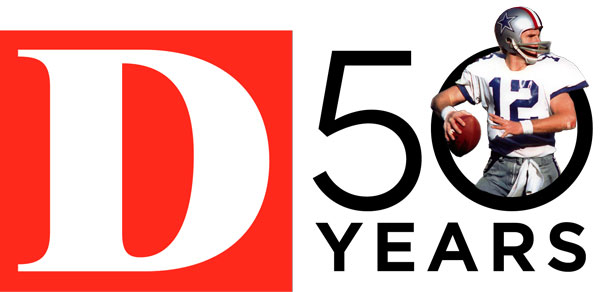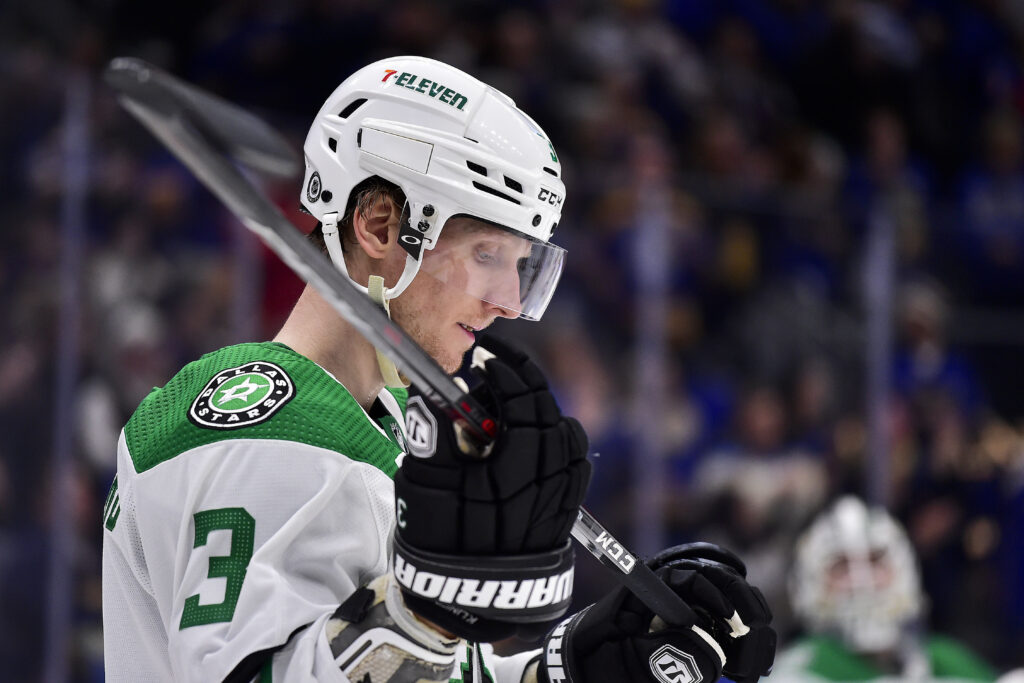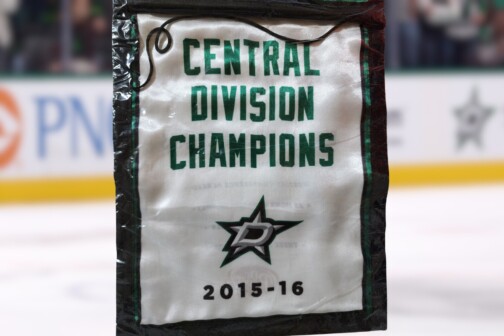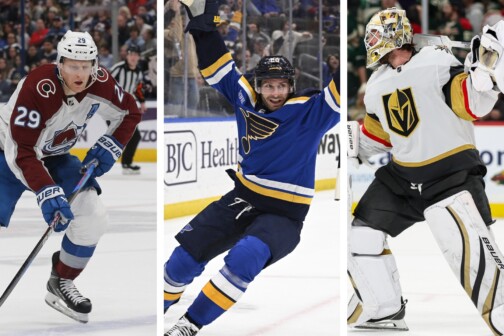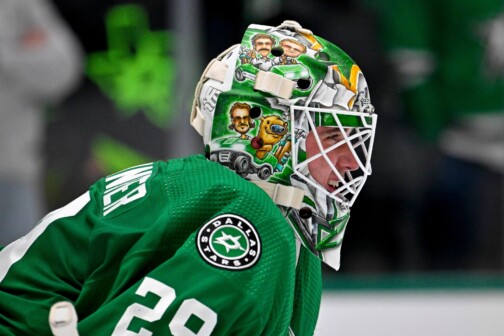Let’s lay down the gauntlet: do you remember what a godsend 22-year-old John Klingberg was? The Stars had been clamoring for a dynamic offensive defenseman for years, ever since Sergei Zubov played his last full season with the Stars in 2008. And for years, all the team had was Trevor Daley: a blueliner with speed but not much else. From 2005 until Klingberg’s rookie year, Daley had never scored more than 20 points in a season. Klingberg functionally doubled that during his 65-game debut in 2014-2015, leading the league in rookie defensemen scoring that year, even edging out eventual Calder winner Aaron Ekblad.
Klingberg would go on to sign a seven-year, $29.75 million extension after that season. Two years later, the Stars selected Miro Heiskanen third overall in the 2017 draft. Those developments would have a knock-on effect in the years to come, cementing Klingberg as both drastically underpaid and the second banana on his own blueline, despite developing into one of the NHL’s best defensemen and Dallas’ highest-point-per-game defenseman in franchise history (yes, more than Zubov).
Fast forward to 2022, and Klingberg is in the final year of that contract, staring down a long-awaited salary correction. But negotiations on an extension have ground to a halt, which goes a long way toward explaining why The Fourth Period’s David Pagnotta reported Friday that the 29-year-old has requested a trade out of Dallas. That’s “not entirely true” according to Klingberg. “It’s not like I’ve been going up and asking ’I want to get traded now,’” he added when addressing the media following Saturday’s win over Pittsburgh. You can and should watch his full comments, but the long and short of Klingberg’s position is: he asked for and was denied the chance to negotiate a new deal prior to the offseason and there’s been little momentum since—so little that Stars management has given him the green light to “start talking with other GMs to see where we were at.”
You can probably understand, then, Klingberg’s frustration. “I feel like I’ve been proving what kind of player I’ve been for eight years now,” he said. Then, the dagger: “For me, as a player, I don’t feel as though I’ve been appreciated in that way, when we don’t even negotiate.”
I enjoy analysis a lot, which is why you’ll usually get a few charts and some fancy stats from me. But we’re gonna skip all that. I’ve said my piece, here and on Twitter. There are a lot of good in-depth pieces out there I recommend: pieces that put into context not only why Klingberg has sometimes struggled (specifically under the current regime and its newfound philosophy) but also why he succeeds in ways that transcend goals and assists. We’re skipping that today because, really, this is all about what it means to “appreciate” something.
We know Dallas appreciates Klingberg on a variety of levels. They appreciated him enough to draft him, develop him, and offer him what was a nice contract at the time despite him having less than a full season’s worth of games under his belt. The last part can’t be overstated: that medium-length contract after such a small sample size was the first of its kind, a relative king’s ransom considering where Klingberg was in the world. But time changes things. That king’s ransom became a pittance. And what Dallas does next is a referendum on how much they appreciate Klingberg’s offensive production and its trajectory heading into the future.
Ever since the organization’s about-face on Lindy Ruff hockey, we know its priorities have shifted. Defense is valued now. Case in point: Esa Lindell will make more in six seasons than Klingberg made in seven ($34 million to $29 million), a clear indication that the Stars appreciate a defensive specialist and are willing to pay market value for one, too. They appreciate defensive veterans and are willing to pay them market value, which is why Ryan Suter got a longer contract term than most observers anticipated this past offseason.
Will Klingberg become a casualty of that shift? That’s bigger than him, which is what makes his next contract a tough decision. He’s not the only one who needs to get paid, after all. Denis Gurianov, Jason Robertson, and Jake Oettinger become restricted free agents after this season. Roope Hintz joins them in 2023-2024. At least three of those four figure to be part of this team’s long-term core—Gurianov is a discussion for another day—and none of them will come cheap. That’s tricky enough in a vacuum and trickier still when the Stars will have to balance those commitments alongside existing big-money deals for Jamie Benn and Tyler Seguin, neither of whom seem capable of producing to the dollar figure.
Can they squeeze a new, top-of-the-payscale deal for Klingberg in there, too? More than that, are they certain his game will age well enough to avoid the same fate as Benn and Seguin? There’s some evidence to indicate that aggressive defensemen experience more erratic declines than most, since the frequency of their good plays are less likely to hold up than the frequency of their bad ones. Could Klingberg fall off like Alex Pietrangelo, Drew Doughty, and Erik Karlsson? Or, given how little Klingberg relies on raw physicality—unlike Karlsson and Doughty do with their speed—do they believe he might be the exception?
For that matter, how much does Dallas appreciate what Klingberg can do for a future that has yet to arrive? Sure, the Stars are defensive in nature now. But their prospects no longer profile like the two-way forwards of years past, such as Radek Faksa, Jason Dickinson, and Ty Dellandrea. Instead they have Wyatt Johnston, a cerebral five-tool threat; Logan Stankoven, a diminutive puck-carrying buzzsaw; and Mavrik Bourque, a classic playmaker. These prospects aren’t just a handful of kids that may wear a sweater with the flip of the coin. These are players having banner post-draft years, with potential to take over when Joe Pavelski and Alexander Radulov depart. How much does Dallas appreciate what Klingberg dancing on the blueline might do for forwards who can capitalize on his unique offensive movement in the opponent’s zone?
The final question is how much Dallas appreciates what they’re willing to lose. Without Klingberg, they would lose one of only two right-shot defensemen on their roster. Thomas Harley, the prospect they’re banking on to fill in the offensive hole Klingberg would leave behind, isn’t ready, and there’s no Plan B in the organization if he doesn’t develop. Then there’s Miro Heiskanen, whose drop in production has raised questions about his offensive ceiling. Even granting that Heiskanen is capable of more, is there anything to indicate that he can approach the 50-to-60 point threshold that Klingberg has twice broken?
There’s a human element in all of this, too. Off the ice, Klingberg has been a fantastic ambassador to the “Hockey is For Everyone” campaign. On the ice, he took the Stanley Cup Final loss to Tampa Bay as hard as anyone. Regardless of his game’s weaknesses, how much does Dallas appreciate his obsession to be the best and the tone that sets in the locker room?
Dallas always seems to be hot or cold. Two seasons making the playoffs under Ruff, two seasons missing the playoffs. Totally embracing offense, then shifting full-bore toward defense, with the exact same results: two seasons in, two seasons out. Does Klingberg sense an indecisiveness reflective of their indecisive philosophy? I don’t know. But I suspect he feels what a lot of Stars fans feel: if they can’t appreciate their most explosive offensive defenseman at market value, then perhaps they’re not sure what they appreciate.
That’s fine. Signing players to long-term contracts is not about right versus wrong but righter versus wronger in the context of what a team is trying to accomplish in a given competitive window. There’s nothing wrong with uncertainty. You just can’t expect a player to devalue themselves because of it. And Klingberg, more than any other blueliner, has no reason to do so.
Get the ItList Newsletter
Author

